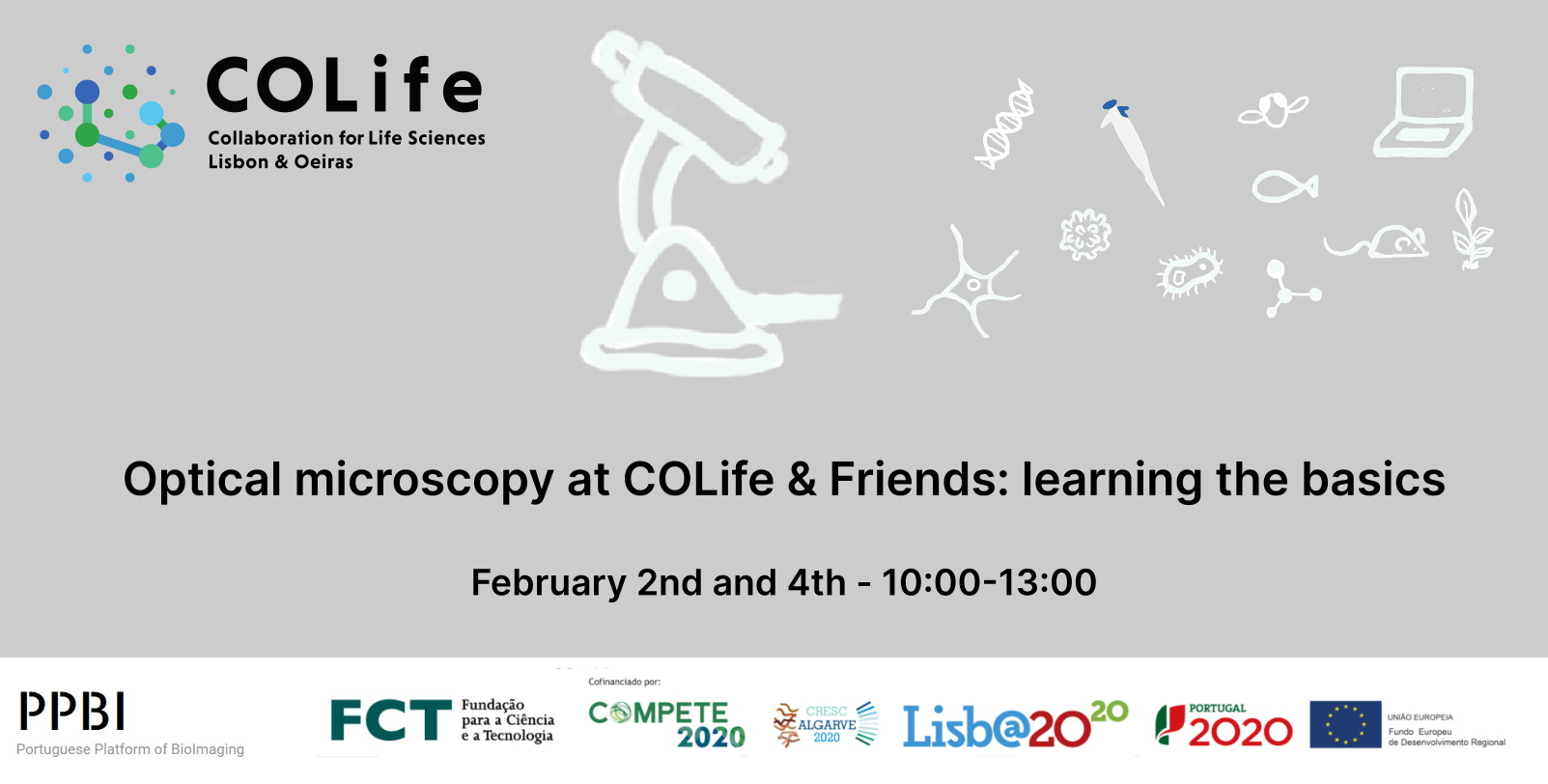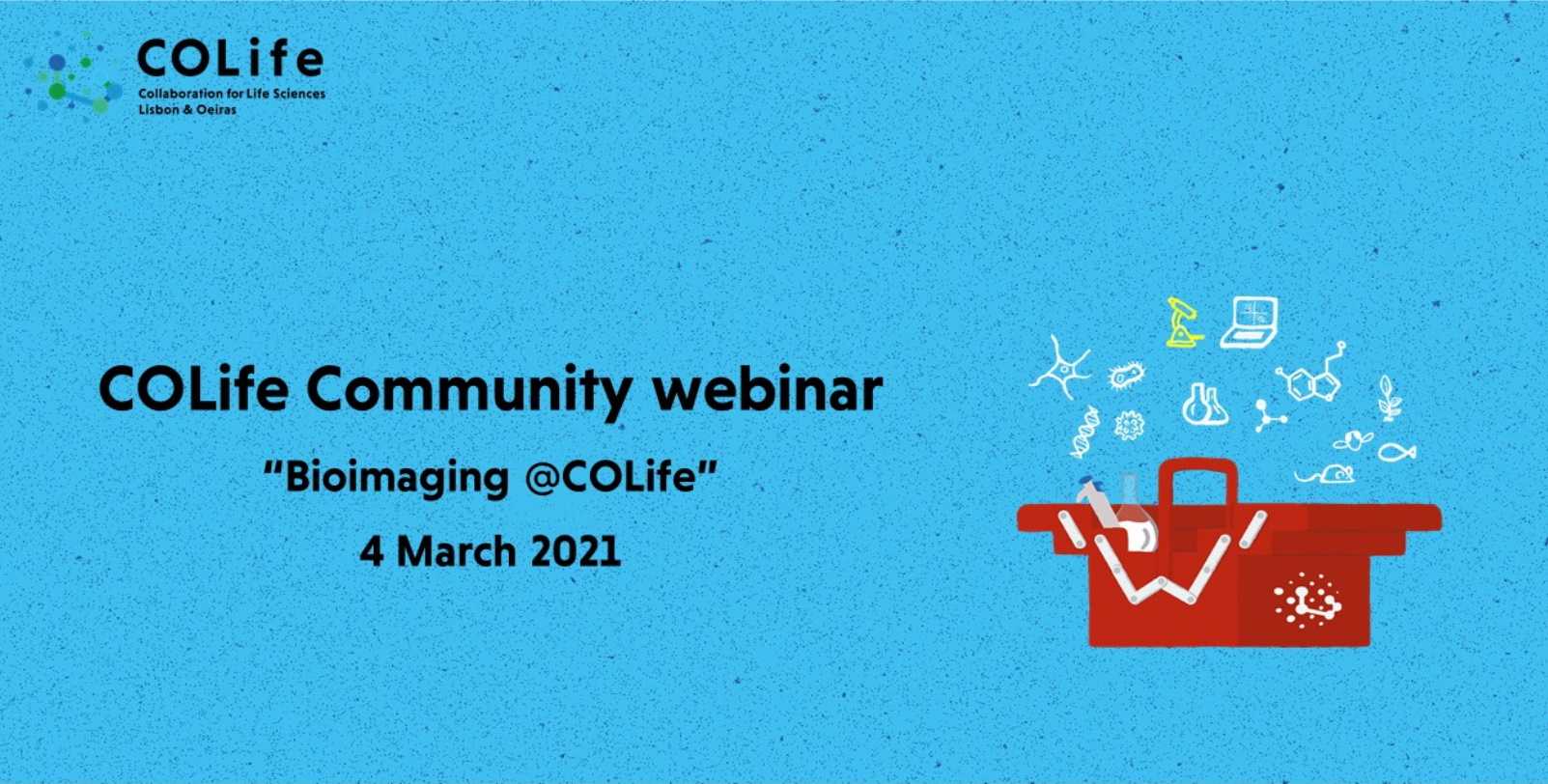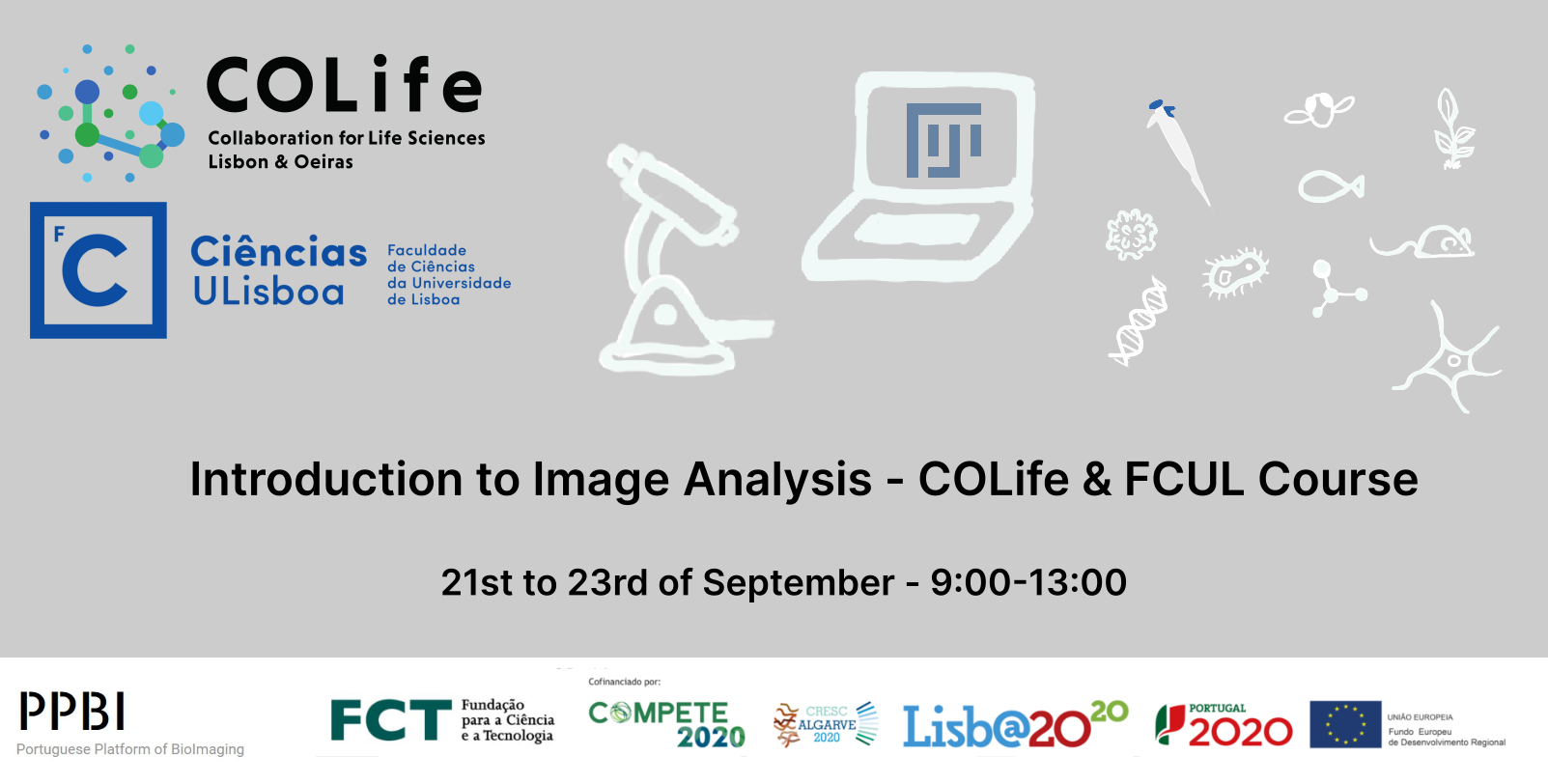Bioimaging
 Advanced BioImaging and BioOptics Experimental (AbbE) Platform at Champalimaud Research
Advanced BioImaging and BioOptics Experimental (AbbE) Platform at Champalimaud Research
At the COLife bioimaging facilities, researchers can find state-of-the art microscopy equipment and services. Researchers can perform imaging across all dimension scales from nano to mesoscopy.
Bioimaging Techniques @ COLife:
- Laser scanning confocal microscopy (LSCM / CLSM)
- Spinning disc confocal microscopy systems (SDCM)
- Deconvolution widefield microscopy (DWM)
- Multiphoton microscopy systems (MMS)
- Total internal reflection fluorescence microscopy (TIRF)
- Photo activated localization microscopy (PALM)
- Stochastic optical reconstruction microscopy (STORM)
- Structured Illumination Microscopy (SIM)
- Fluorescence correlation spectroscopy (FCS)
- Fluorescence cross-correlation spectroscopy (FCCS)
- Fluorescence-lifetime imaging microscopy (FLIM)
- Fluorescence recovery after photobleaching (FRAP)
- Fluorescence resonance energy transfer (FRET)
- High-throughput microscopy (HTM)
- Selective plane illumination microscopy (SPIM)
- Optical projection tomography (OPT)

Bioimaging Equipment @ COLife:
Bioimaging Training @ COLife:

Optical microscopy at COLife & Friends: learning the basics
The “Optical microscopy at COLife and Friends - learning the basics” workshop covered the optical microscopy techniques and expertise available across COLife.

COLife community webinar: Bioimaging @COLife
In this COLife webinar you will get to know: - the advantages of COLife for the Bioimaging facilities; - future COLife Bioimaging related courses and events; - unique expertise and equipment at each COLife Bioimaging facility; - overview of the size/capacity and diversity of the equipment of all COLife Bioimaging facilities

Introduction to image analysis - COLife and FCUL course
This course aims at providing researchers who are initiating microscopy-based projects with fundamental skills on digital imaging and biological image analysis. The course incorporates theoretical lectures as well as hands-on exercises which demonstrate image analysis procedures on Fiji/ImageJ, the reference open source image analysis software. Finally, trainees will learn about recording and automating image processing workflows. Trainees will be exposed to images produced by transmission, epifluorescence and confocalmicroscopes.


